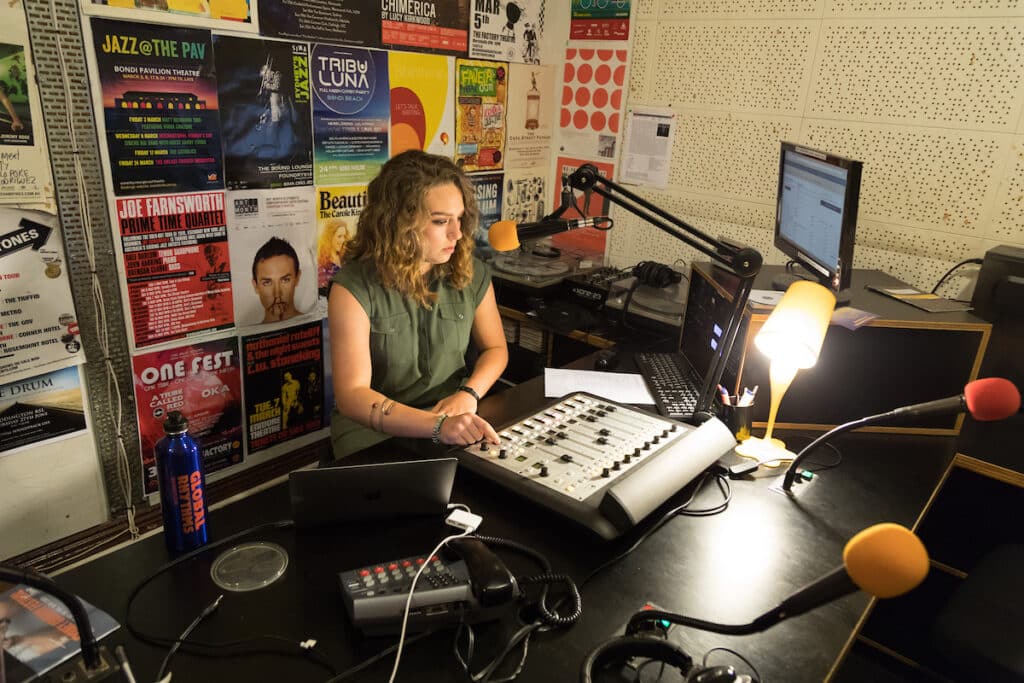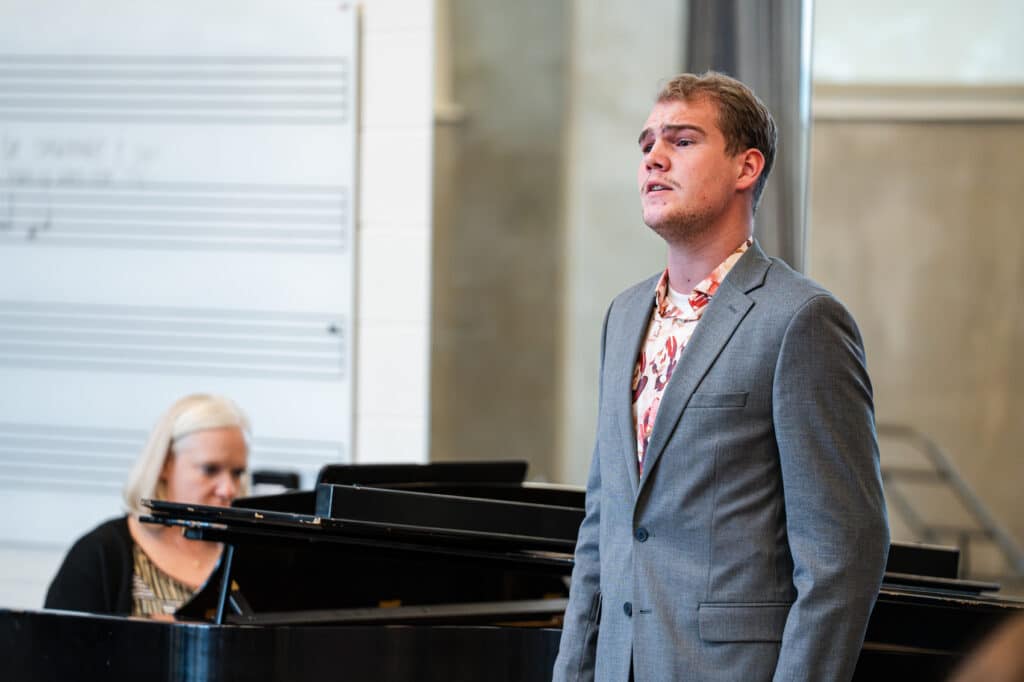
Music, BA Concentration
Music Journalism & Media
Where music meets storytelling and content creation.
Program Overview
The Music Journalism & Media concentration within the Music, BA degree is designed for students who are passionate about writing, media, and the ever-evolving world of music and culture. Whether you’re interested in writing reviews, producing podcasts, creating video content, or covering live events, this program helps you build the voice, skills, and portfolio to make an impact in the music media landscape.
This one-of-a-kind concentration is offered in collaboration with the College of Communication & Information, giving you access to expert faculty and courses in journalism, media production, and digital storytelling — all while grounding your work in strong musicianship and cultural context.
If you love music and want to tell its stories in creative, influential ways: this path is for you.
Why study Music Journalism & Media?
- Learn to write, report, and create multimedia content focused on music
- Take advantage of cross-college coursework in journalism, communication, and media
- Develop skills in critical listening, storytelling, podcasting, video, feature writing, and more
- Build a strong understanding of music’s cultural, historical, and social impact
- Gain hands-on experience through internships and collaborative media projects
What can you do with the Music Business Administration degree after graduation?
Graduates from this concentration are prepared for roles like:
- Music journalist, critic, or columnist
- Podcast host or producer
- Arts and entertainment writer
- Social media manager for music platforms
- Editorial roles in music media, PR, or cultural institutions
- Graduate study in journalism, media studies, or cultural studies
Featured Courses
More course information can be found in the undergraduate catalog.
JMED 220 Scriptwriting for Creative Works
Introduction to creative scriptwriting for broadcast/cable television productions or streaming series. Includes copywriting for commercials. Scripts are expected to be pitch-ready by the end of the semester.
JMED 331 Digital Content Creation
Introduces students from varied disciplines to the basics of effective writing and content production across media platforms. Audience analytics is also introduced to give students the tools needed to understand their target audiences and how to effectively reach those audiences through digital content.
MUBS 301 Advanced Topics in Music Business
Practical research and discovery of industry practices through analysis and assessment of contracts/business structures utilized in the music industry. Topics include industry-wide templates for Record Deals, Licensing, Distribution, Aggregator Deals, Marketing and Promotion Services and Rights Management.
MUBS 304 The Live Music Industry
Fundamentals of the Live Music Industry including a realistic perspective of essential aspects of live production. Roles discussed include Promoters, Performers, Management, Booking Agencies, Venue Management, Production, Tour Planning/Management, Artist/Vendor Contracts and Financial Structures.

Meet the Director of Music Business & Communications
With over 30 years in the entertainment industry, world-renowned jazz guitarist and recording artist Juan Carlos “JC” Quintero brings unmatched professional experience to the Music Business Administration program. Quintero has worked with major music labels and production companies—including Saban Brands, Genius Brands International/Kartoon Studios, and Funrise Inc.—bridging the worlds of performance, production, and media.
At Saban Brands LLC, Quintero served as the the Music Supervisor and Executive in Charge of Music, where he oversaw music production and rights management for hit television properties like Power Rangers, Paul Frank Industries, Julius Jr., Digimon, and Glitter Force.
Students in the program gain access to JC’s real-world industry insights, professional network, and comprehensive understanding of the music business, from live performance and recording to licensing and brand integration.

Still want to take applied lessons?
Music, BA students have the option to take applied lessons in an instrumental or vocal studio. Students pursuing this option will need to audition for the studio. More information can be found on our Auditions & Interviews page.
Each studio is led by expert faculty and enhanced by opportunities to work with visiting guest artists, professional coaches, and collaborative performers. This close-knit environment helps you refine your technique, shape your artistic voice, and prepare for what’s next.

Admissions and Aid
Choosing the right university to pursue a music degree is an important decision and a significant investment. We want to make sure that you have the information you need to both apply and make attending UT affordable.
Questions? We’re here to help. Contact our admissions team at [email protected].

